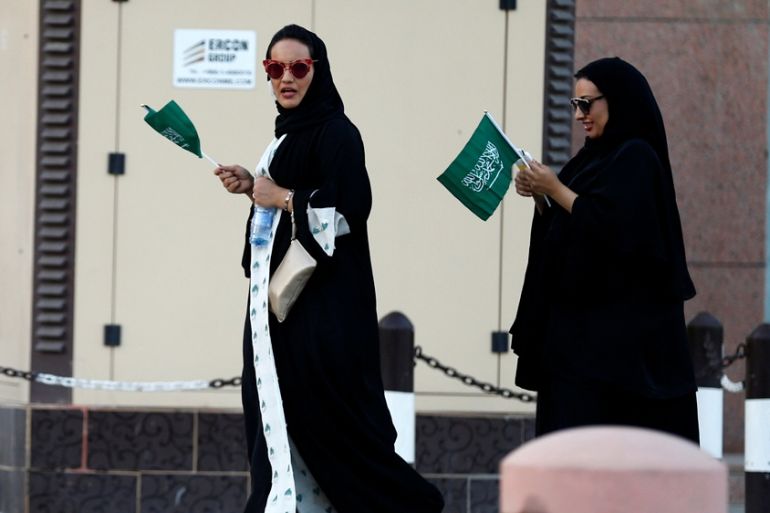Cautious welcome to Saudi decree over guardian system
Human rights advocates cautiously welcome royal decree by Saudi Arabia loosening guardianship rules on women.

A Saudi royal decree allowing women greater access to government services without the consent of a male relative has drawn positive, but cautious, responses from human rights advocates.
The decree by King Salman bin Abdulaziz Al Saud, issued last month but first reported on Thursday, said women should not be required to obtain consent for services “unless there is a legal basis for the request in accordance with the provision of the Islamic [law]”, according to local media.
Women’s rights activists said the memo codifies the rights of Saudi women to access a job, higher education or medical procedures and to exit prison, among others, without a guardian’s permission.
|
|
There are no specific laws barring women from these services, but some government bodies previously requested that a male give his consent first.
Sahar Nasief, a Jeddah-based activist who campaigns for an end to the guardianship system, welcomed the decree, which is to come into effect in three months, as a first step towards equal rights.
“Women are very happy, men too,” she said. “Everyone is talking about it.”
She said she hoped the order would put a stop to what she called arbitrary demands by government officials for permission from male relatives, which she said is often based on local customs and not on religious teachings.
“It [the decree] is not vague, it’s very strong,” she said. “If something is not in the law, we can demand it.”
But she also struck a cautious note: “Let’s hope it works, and it’s not just on paper.”
Nasief said women would still require a male relative’s consent to travel, as well as obtain and renew passports.
“Our goal is full equality between girls and boys,” she said.
READ MORE: Let women drive, says Saudi prince
The decree relaxing guardianship, which applies to all government bodies, was made based on proposals made by the Saudi cabinet “aimed at resolving problems related to women’s rights”, according to a statement issued by the Saudi Human Rights Commission on Thursday.
The directive also instructs relevant government agencies and affiliated bodies to review current procedures related to public services provided to the kingdom’s female citizens.
Maha Akeel, a women’s rights campaigner and a director at the Jeddah-based Organisation of Islamic Cooperation, described the decree as an opportunity to start a debate about guardianship rules.
“Now, at least it opens the door for discussion on the guardian system,” Akeel told the Thomson Reuters Foundation. “Women are independent and can take care of themselves.”
She added: “Male guardianship is un-Islamic and humiliating for women … Some [men] take advantage of this male guardianship for their own benefit and abuse it.”
Adam Coogle, a Middle East researcher at Human Rights Watch, called the directive a “real step forward”.
“It’s a very clear acknowledgment from the king himself that this is a problem,” Coogle told Al Jazeera by phone.
But Ebtihal Mubarak, a Saudi journalist based in New York, said the decree was “nothing but a scam”, calling it a ploy to divert attention from recent abuses of women.
“It [Saudi Arabia] issues these royal decrees without enforcement mechanisms and no real repercussions of noncompliance,” she told Al Jazeera.
“Meaning these decrees are not meant to change anything at the institutional level, but to create the aura of an action, to escape or divert attention from human rights scandals.”
READ MORE: Rio 2016 – Saudi runner aims to break barriers
The new directive is the latest in a series of moves in Saudi Arabia, one of the most gender-segregated nations in the world, to include more women in the workforce as it moves to diversify its economy and cut reliance on oil, according to analysts.
The trend started in 2011 when the late King Abdullah allowed women onto the government advisory Shura Council.
Women can now vote in municipal elections and work in some retail and hospitality jobs. In 2012, they were allowed to compete in the Olympics for the first time.